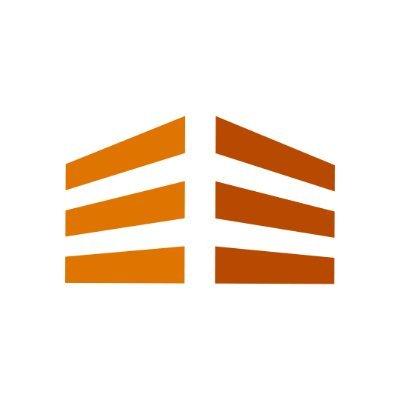Invest in commercial real estate projects
Invest in franchises
Investments
$25,000
Minimum investment amounts on CrowdStreet start at $25,000, with the exact threshold varying by individual project.
Moderate Risk
3/5
Investing via CrowdStreet entails typical real estate risks such as market fluctuations and property-specific issues, with no guarantee of returns and potential for capital loss.
High Risk
4/5
Investing in FranShares involves risks such as market volatility, economic changes, and franchise-specific challenges. Despite efforts to mitigate risks, there's no guarantee of returns, and FranShares' financial health could impact investments.
Minimum Liquidity
1/5
CrowdStreet investments are generally illiquid, with capital committed for several years until a potential liquidity event, such as a property sale or refinancing, without a secondary market for early exit.
Minimum Liquidity
1/5
While liquidity isn't guaranteed, the platform is developing a secondary market for potential future liquidity opportunities.
Receive new reviews from Fintorial
High Return
17.9 %
CrowdStreet has a historical 17.9% Realized IRR and a typical 3.1-year hold period for investments, with returns varying based on equity shares, debt interest, or hybrid terms, and property sales.
Moderate Return
20 %
FranShares' TNT Franchise Fund Inc., with 55 locations across major U.S. metros, historically generates returns of 20 to 28% EBITDA per location after 16-18 months.
Long-term Investment
3-10 years
CrowdStreet investments typically have a hold period of 3.1 years on average, with some ranging from 3-5 years and others up to 10 years, reflecting a long-term investment horizon.
Long-term Investment
5-15 years
Income portfolios target a 10-15 year hold; growth funds aim for a 5-7 year period before selling.
Who can invest
United States
Individuals must be accredited U.S. residents with valid identification to invest on CrowdStreet, while entities need U.S. accreditation, taxation, and verification, subject to CrowdStreet's approval.
Who can invest
International
FranShares welcomes both accredited and non-accredited investors, focusing mainly on opportunities for non-accredited individuals. The platform also accepts international investors from many countries, depending on the specifics of each offering.
Moderate Volatility
3/5
Assets on CrowdStreet may experience volatility due to economic shifts, interest rate changes, and local market trends, affecting property values and investment returns.
Moderate Volatility
3/5
Franchise investments are subject to volatility due to economic shifts, industry trends, and franchise performance. While some franchises may be more resilient, values can fluctuate, posing a risk to investment value in adverse conditions.
Regulation and audits
SEC Regulated
CrowdStreet's offerings are regulated by the SEC and subject to regular audits for compliance, ensuring adherence to legal standards for securities and real estate investments. However, details on specific audits and regulations are not publicly disclosed.
Regulation and audits
SEC Regulated
FranShares employs SEC regulations A+, D, and CF for its investment offerings, creating structures with a main investment vehicle and subsidiaries for each franchise brand, possibly including locations or groups of locations.
Insurance
Yes
CrowdStreet's properties are typically insured against physical damage, but this does not cover market risks or guarantee full property value protection. Investors should note that insurance mitigates, but doesn't eliminate, all investment risks.
Insurance
Yes
FranShares' insurance covers physical damages or losses to franchises but does not protect against market fluctuations, economic downturns, or fraud. Coverage limits may not fully reflect market values, meaning insurance does not eliminate all investment risks.
Payouts
Dividends
CrowdStreet investors may receive distributions, typically on a quarterly basis, based on the cash flow and profitability of their investments, but these are not guaranteed and depend on the specifics of each project.
Payouts
Dividends
FranShares plans to distribute excess cash flow to investors 12 to 18 months after each offering closes, with distributions expected quarterly. The frequency can vary (quarterly, semi-annual, or annual) based on the specific offering.
Withdrawals
Investors on CrowdStreet typically receive their money back after a liquidity event like a property sale, based on the timeline of the specific project's business plan. Real estate investments are illiquid, so funds cannot be withdrawn on demand.
Withdrawals
Investors in FranShares can receive their investment back through the sale of franchises, targeted within 5-15 years depending on the fund type. Upon sale, net proceeds are distributed to investors based on their fund ownership share.
Extra Fees
Yes
CrowdStreet investments may include sponsor-determined fees such as acquisition, asset management, and property management fees, along with performance-based carried interest.
Extra Fees
Yes
FranShares charges a 1% to 3% annual management fee and possibly a performance fee, detailed in each offering's documents. No management fees are charged for the "TNT Franchise Inc." offering.
Taxes
Tax Form
CrowdStreet issues Form K-1 or other relevant tax documents to investors for annual tax reporting, with the advice to consult a tax advisor for proper tax treatment of investments.
Taxes
Annual Statement
FranShares investors may owe capital gains taxes on profits from share sales and pay taxes on dividends, classified as ordinary or qualified based on holding periods and individual tax situations.

